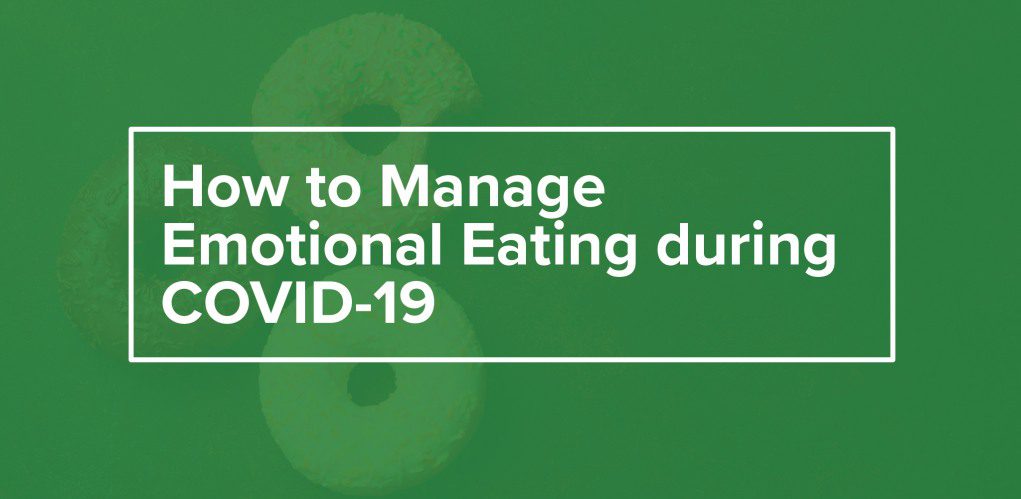How many people out there have found themselves taking multiple trips to the fridge or pantry now that most of us are at home? Or finding themselves looking for snacks and treats in the afternoon or evening? I know I have! Yes, even dietitians emotionally eat – we are still human!
We all know that we are supposed to eat good food cause its “healthy” and it provides us with nutrients however it is not necessarily the reasons why we eat.
Food plays a tremendous role other than just nourishment. It tastes good, it smells good, it looks good, it plays a social role, it is passed down from traditions but more importantly food plays a comfort role. We eat out of stress, out of anxiety, out of happiness and celebration.
More than ever with the changes in our world and the stress from COVID-19, plus the feelings of being “stuck” and having “no where to go” and “no one to talk to” – many people have turned to find comfort in food. This is a normal response. Usually we are seeking treats or food not to fill a hunger response but an actual feeling or emotion that we are trying to sooth or comfort.
Looking at ways to manage emotional eating is a very important part of health.
What can you do:
1) Eat regular meals and snacks – skipping meals is more likely to cause overeating later in the day.
2) Include a protein at meals (especially breakfast and snacks). This helps with feeling fuller longer and can prevent dips of fatigue especially during the afternoon.
3) Be mindful when eating. Try to eat at your table and turn off distractions such as electronics or phones. Further, make sure that if you are working from home, you are taking breaks for meals and snacks just like you would want to at the office. Your body needs the fuel for energy but your mind and mental well being also need that break.
4) Reflect daily. Anytime you are feeling the need for emotional eating it is important to stop and reflect. What emotion are you feeling: tired, stressed, bored? This is an important step to help determine what self-care activity you need to do to fulfill that emotion and not your stomach.
5) Engage in self-care. This is probably the most important piece in all of this. Taking care of yourself during these times is critical. If you reflect and are tired, then try going to bed earlier. If you are stressed, try meditation or exercise. If you are bored, try to find something to engage your mind – reading, audio books, music, etc. Sometimes it takes 2-3 strategies to be able to curb or control those cravings.
This takes practice. Emotional cravings do not just vanish overnight nor are they gone forever. The key is practice, practice, practice. Also know that these strategies are not going to work every time and sometimes you are just going to have that snack. Enjoy it, be okay with moving on and try again the next time. It is important to know that this doesn’t mean you are failing; it just means that you are human!
By Andrea Shackel, Registered Dietitian
Revive Wellness Inc.



